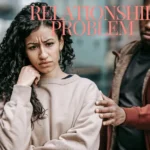Navigating the complexities of long-term relationships can be challenging, especially when they end. Many individuals wonder, “Do long-term relationships get back together?” This question weighs heavily on those who find themselves separated from a partner they have shared many years with. According to relationship expert Dr. Sue Johnson, a leading psychologist and developer of Emotionally Focused Therapy, the potential for rekindling a relationship often hinges on several factors, including emotional attachment, unresolved issues, and personal growth. Understanding these dynamics can be crucial for anyone facing the difficult choice of whether to move on or try to reunite.
In this article, we will explore the dynamics of long-term relationships, the likelihood of reconciliation, and practical steps to take whether you wish to rekindle your romance or move forward. We’ll also address common concerns, supported by data and expert insights, to help you navigate this emotional journey.
Understanding Long-Term Relationships
The Dynamics of Long-Term Relationships

Long-term relationships are characterized by deep emotional bonds and shared experiences. These partnerships often begin with excitement and passion, but as time goes on, they can face various challenges, such as:
- Communication Issues: Misunderstandings may arise as partners become complacent or assume they know each other’s thoughts and feelings.
- Different Life Goals: Over time, individuals may develop differing aspirations, leading to conflict.
- Routine and Boredom: The initial excitement can fade, making partners feel more like roommates than lovers.
The Impact of Breakups

The emotional toll of breaking up can be profound. Many individuals experience a range of feelings, including grief, anger, and confusion. Research shows that breakups can lead to significant emotional distress. According to a study published in the Journal of Health and Social Behavior, individuals who experience a breakup often report higher levels of anxiety and depression.
Read More: How Often Do Exes Get Back Together
Do Long-Term Relationships Get Back Together?
Statistics on Reconciliation
When it comes to the question, “What percentage of long-term relationships get back together?” the statistics may surprise you. Studies indicate that approximately 50% of couples who break up may eventually reconcile. This figure can vary widely based on factors such as the length of the relationship, the reasons for the breakup, and individual circumstances.
Factors Influencing Reconciliation
- Emotional Attachment: Strong emotional bonds make it difficult to let go. Many people find themselves reminiscing about the good times, which can reignite feelings.
- Unresolved Issues: If partners feel that their problems weren’t fully addressed, they may be more likely to attempt reconciliation. Many couples find that time apart allows for reflection and growth.
- Changes in Circumstances: Life changes, such as career shifts or personal growth, can create new opportunities for reconciliation. When partners reunite with different perspectives, they may find their relationship is stronger.
- Communication and Closure: A lack of closure can lead to confusion and longing. Effective communication can help partners understand each other’s feelings and potentially pave the way for a fresh start.
Do Exes Come Back Years Later? Understanding the Dynamics of Past Relationships

Many people find themselves asking, “Do exes come back years later?” It’s a common concern for those who have experienced a significant breakup. As time passes, feelings for an ex can linger, leaving you wondering if reconciliation is possible. This article will explore why you might still have feelings for an ex, whether love for an ex ever truly fades, signs that your ex may still have feelings for you, and indicators that they are likely not coming back.
Why Do I Still Have Feelings for My Ex Years Later?
It’s not uncommon to hold onto feelings for an ex, even years after a breakup. Several factors can contribute to this lingering emotional attachment:
1. Emotional Bonds
- Shared Memories: The experiences you shared with your ex create lasting emotional connections. Nostalgia can trigger feelings, reminding you of the good times.
- Unresolved Feelings: If the relationship ended without closure, lingering questions can keep old feelings alive.
2. The Nature of Love
- Love is complex and doesn’t simply disappear. Attachment can remain even after a relationship ends, especially if it was long-term or deeply emotional.
3. Personal Growth
- Sometimes, individuals evolve after a breakup, leading to a desire to reconnect. You might wonder if a relationship could thrive under new circumstances.
Does Love for an Ex Ever Go Away?
While love can change over time, it may not completely vanish. Many people experience what is known as “conditional love,” where feelings persist but evolve into something different, often rooted in fondness rather than romantic longing. Factors that influence whether love fades include:
- New Relationships: Engaging in new, healthy relationships can help redirect your feelings and provide emotional closure.
- Time and Healing: As you grow and heal, your attachment to an ex may lessen, allowing you to move on.
How Do You Know If Your Ex Still Loves You?

Understanding whether your ex still has feelings for you can be tricky. Here are some signs to look out for:
1. Communication Patterns
- If your ex frequently reaches out, whether through texts or social media, it may indicate that they still care.
2. Nostalgia
- If they often reminisce about your time together or express regret about the breakup, this could signal lingering feelings.
3. Jealousy
- If your ex shows signs of jealousy when they see you with someone else, it might suggest that they still have feelings for you.
4. Mutual Friends
- If mutual friends mention that your ex still talks about you or asks about your well-being, it may indicate that they haven’t completely moved on.
Do Guys Still Love Their Ex?
Yes, many men retain feelings for their exes long after a breakup. While societal norms may encourage men to appear emotionally detached, research shows that men can experience deep emotional connections and nostalgia for past relationships. Factors influencing this include:
- Attachment Styles: Men with secure attachment styles may process breakups differently, allowing for lingering feelings without negative consequences.
- Regret and Reflection: Men may reflect on the relationship over time, especially if they feel that the breakup was premature or mishandled.
How Do You Know Your Ex Isn’t Coming Back?

Recognizing that your ex isn’t likely to return can be painful, but it’s essential for healing. Here are some signs that they may not be coming back:
1. Lack of Communication
- If your ex has stopped reaching out or responding to messages, it may indicate that they have moved on.
2. New Relationships
- If your ex is dating someone new and appears happy, it’s a strong signal that they are not interested in rekindling the past.
3. Closure Statements
- If they’ve made statements about needing to move on or have closed the door on future possibilities, take those words seriously.
4. Social Media Behavior
- If your ex actively avoids interaction on social media or seems to have erased reminders of your relationship, it may indicate a desire to move forward.
The Seven-Year Relationship Breakup Phenomenon
What Is the Seven-Year Relationship Breakup?

The seven-year mark in a relationship is often viewed as a significant turning point. Many couples experience what is commonly referred to as the “seven-year itch.” This term reflects the idea that after seven years, relationships may struggle due to increased pressures and changing dynamics.
Factors contributing to this phenomenon include:
- Life Changes: Couples may face major life events, such as the birth of a child or career shifts, which can change their relationship dynamics.
- Familiarity: The novelty of the relationship fades, and partners might begin to take each other for granted.
How to Navigate a Seven-Year Breakup
If you find yourself in a situation where you’ve experienced a breakup after seven years, it’s essential to take time to reflect. Here are some strategies:
- Reflect on the Relationship: Consider what worked and what didn’t. Understanding the reasons behind the breakup can provide clarity.
- Seek Support: Talk to friends or a therapist. Sometimes, an outside perspective can help you see things differently.
- Focus on Self-Growth: Use this time to invest in yourself. Pursue hobbies or interests that you may have neglected during the relationship.
Conclusion
Navigating the aftermath of a long-term relationship can be daunting. Understanding whether do long-term relationships get back together depends on various factors, including emotional attachment, unresolved issues, and personal growth. While reconciliation is possible for many couples, it’s essential to focus on self-care and personal development, whether you choose to rekindle the romance or move forward independently.
Remember that every relationship is unique, and your journey is your own. Embrace the lessons learned and remain open to new possibilities. Love can flourish again, either with the same partner or with someone new.
Disclaimer: I am not a relationship expert. The information in this article comes from my own experiences and insights. For professional guidance, it’s best to consult a qualified relationship counselor or therapist.
FAQ
Q: Do long-term relationships get back together?
A: Yes, approximately 50% of couples who break up may eventually reconcile, depending on various factors such as emotional attachment and communication.
Q: What percentage of long-term relationships get back together?
A: Studies suggest that about 50% of couples who break up may reunite, though this can vary based on individual circumstances.
Q: What is the seven-year relationship breakup?
A: The seven-year breakup, often called the “seven-year itch,” refers to a common phenomenon where couples face increased challenges around the seven-year mark, leading to potential separation.
Do exes come back years later?
A: Yes, many exes do come back years later, especially if emotional connections remain and circumstances change.
Q: Why do I still have feelings for my ex years later?
A: Feelings for an ex can linger due to shared memories, emotional bonds, and unresolved feelings.
Q: Does love for an ex ever go away?
A: Love may change over time but often does not completely disappear; it can evolve into a different form of affection.
Q: How do you know if your ex still loves you?
A: Signs may include frequent communication, nostalgia about the past, jealousy, and inquiries from mutual friends.
Q: Do guys still love their ex?
A: Yes, many men retain feelings for their exes, often reflecting on the relationship over time.
Q: How do you know your ex isn’t coming back?
A: Signs may include a lack of communication, new relationships, closure statements, and avoidance of social media.










